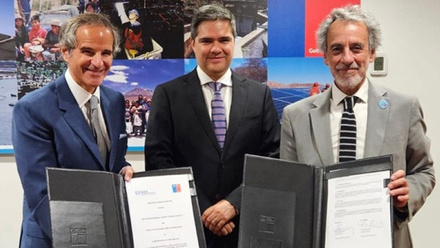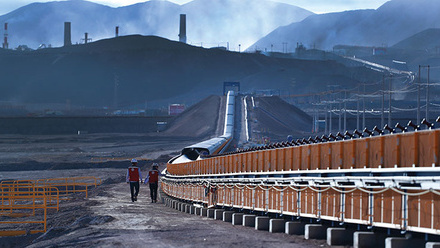Chile slashes mining permitting time
The Chilean Government is reducing the time taken for mines to obtain permits by 30-70%.

Big trucks and machinery at Chuquicamata - a massive open-pit copper mine in northern Chile, the world's largest in terms of excavated volume
© Everton Lourenco / ShutterstockThe Government says the bill establishing a Framework Law on Sectoral Authorizations seeks to substantially reduce permit processing times for investment projects without lowering regulatory standards.
The project, promoted by the Ministry of Economy, Development, and Tourism, is part of the legislative fast track for economic growth and seeks to make progress in simplifying permitting, which will provide greater certainty for investment projects without compromising regulatory standards or reducing current environmental and technical requirements.
Economy Minister Nicolás Grau says, 'We always said it was possible to improve times and...to move forward in a very sustained way, without lowering regulatory standards and that is precisely what has been achieved today.'
The projects main solutions are:
- Minimum processing standards: A set of common rules is established for all sectoral permits: initiation through forms, eligibility tests, inter-service reports, mandatory deadlines, and the use of administrative silence as a safeguard.
- Alternative Enabling Techniques (AETs): These techniques allow low-risk permits to be replaced by sworn declarations or notices, without lowering regulatory standards. These AETs are subject to ex post oversight, with severe penalties for fraud.
- Digital One-Stop Shop – SUPER Platform: The project transforms the SUPER platform into a state policy as a single, traceable entry point for all applications.
- Technical institutionality: It creates the Office of Sectoral Authorisations and Investment within the Ministry of Economy, responsible for coordinating, monitoring, advising, and operating the system. It also promotes regional roundtables, continuous modernisation of permits, and fosters management improvements through institutional agreements and goals.
- Sectoral legal modifications: The bill modifies more than 40 sectoral laws to adapt their permits to the LMAS, establish new regulatory powers, and implement the Sectoral Permits Bill. Sectors covered include mining, public works, health, water, energy, maritime concessions, and the Municipal Department of Planning.










